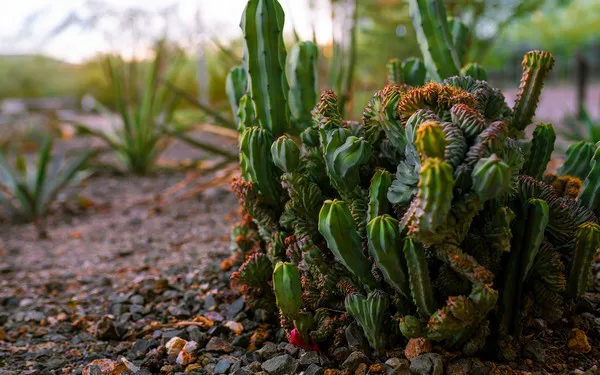Gardening and plant cultivation can be a rewarding and fulfilling hobby, but it often comes with the challenge of dealing with pests that can wreak havoc on your plants. To maintain the health and beauty of your garden, it’s essential to understand how to prevent and control these pests. One effective method is using sprays and treatments to deter and manage pests.
Understanding Pests
Before we dive into the different solutions available, it’s vital to comprehend the types of pests that can threaten your plants. Pests can range from insects like aphids, mealybugs, and caterpillars to arachnids such as spider mites and nematodes. Additionally, fungal and bacterial diseases can also harm your plants. Identifying the specific pests in your garden is the first step in determining the most suitable preventive measures.
Neem Oil
Neem oil, derived from the seeds of the neem tree, is a versatile and natural solution for pest prevention. It has insecticidal, fungicidal, and antibacterial properties, making it an excellent choice for a wide range of pest issues. Neem oil disrupts the feeding and reproductive cycles of many insects, discouraging their presence on your plants.
Insecticidal Soap
Insecticidal soaps are a gentle yet effective option for controlling soft-bodied pests like aphids, mealybugs, and whiteflies. They work by breaking down the protective waxy coating on these insects, ultimately causing dehydration and death. Insecticidal soaps are typically non-toxic to humans and pets, making them a safe choice for pest management.
Horticultural Oils
Horticultural oils, often known as dormant oils, are used to control overwintering pests and their eggs. These oils smother pests like scale insects, mites, and aphids by suffocating them. It’s important to use horticultural oils during the dormant season, before new growth emerges, to prevent damage to your plants.
Pyrethrin-based Sprays
Pyrethrin is a natural insecticide derived from chrysanthemum flowers. It is highly effective against a wide range of pests, including aphids, beetles, and caterpillars. Pyrethrin acts as a contact insecticide, paralyzing and killing pests upon contact. It is considered a safer option for beneficial insects compared to synthetic chemical alternatives.
Diatomaceous Earth
Diatomaceous earth is a natural, abrasive substance made from fossilized diatoms. When pests come into contact with it, diatomaceous earth damages their exoskeleton, causing them to dry out and die. This method is particularly effective for crawling insects like ants, earwigs, and slugs. It’s important to apply diatomaceous earth while the foliage is dry for the best results.
Copper-based Fungicides
Pests are not limited to insects; fungal diseases can also pose a significant threat to your plants. Copper-based fungicides, like copper sulfate or Bordeaux mixture, are excellent choices for controlling common fungal infections. They create a protective barrier on the plant’s surface, preventing fungal spores from germinating and spreading.
Bt (Bacillus thuringiensis)
Bt is a naturally occurring bacterium that produces proteins toxic to certain insects, such as caterpillars and mosquito larvae. When applied to plants, Bt acts as a biological insecticide. It is non-toxic to humans, animals, and most beneficial insects, making it an environmentally friendly option for pest control.
Companion Planting
Companion planting is a preventative method that involves planting certain crops near each other to deter pests. For example, marigolds are known to repel aphids and nematodes, while basil can deter flies and mosquitoes. This natural strategy encourages a diverse and balanced ecosystem in your garden, reducing the likelihood of pest infestations.
Essential Oils
Essential oils, such as peppermint, lavender, and eucalyptus, can be diluted and used as natural pest deterrents. These oils emit strong scents that pests find unappealing, leading them to avoid the treated area. Essential oils can be mixed with water and sprayed directly on the plants or used in traps to keep pests at bay.
Garlic and Chili Pepper Sprays
Homemade garlic and chili pepper sprays can be effective against a variety of pests. They act as both an insect repellent and a natural pesticide. When sprayed on plants, these concoctions can deter pests by making the foliage unappetizing or causing irritation.
Application and Best Practices
Using these pest prevention methods effectively requires careful consideration of application and best practices:
Timing: Apply pest prevention measures early to catch and deter pests before they become a problem. Regular monitoring of your garden is key to timely intervention.
Proper Dilution: Follow the instructions on the product label or consult with a local expert to ensure the correct dilution and application rate for the specific pest issue and plant type.
Targeted Application: Focus on the undersides of leaves and areas where pests are likely to hide. Avoid saturating the entire plant unless necessary, as overapplication can harm beneficial insects.
Avoid Overuse: Using pest prevention methods excessively can harm the environment and beneficial organisms. Employ them only when necessary to minimize their impact.
Protective Clothing: When working with pesticides or natural sprays, wear appropriate protective clothing, including gloves and eye protection, to ensure your safety.
Conclusion
Maintaining a pest-free garden requires a combination of proactive measures, proper identification of pests, and careful application of the right treatments. Whether you prefer natural remedies or commercial products, there is a wide range of options available to keep your plants healthy and thriving. By understanding the specific needs of your garden, you can make informed decisions on what to spray on your plants to prevent pests and enjoy a beautiful and bountiful garden year-round.


